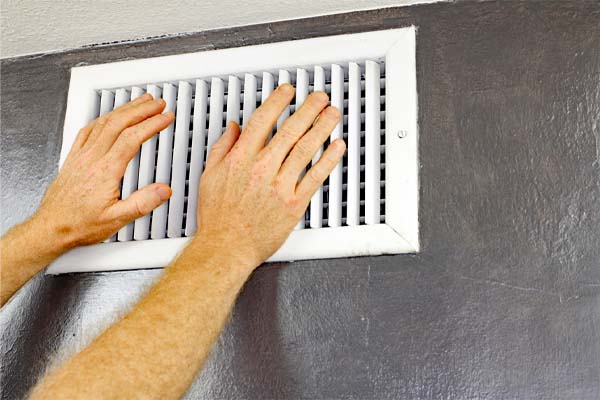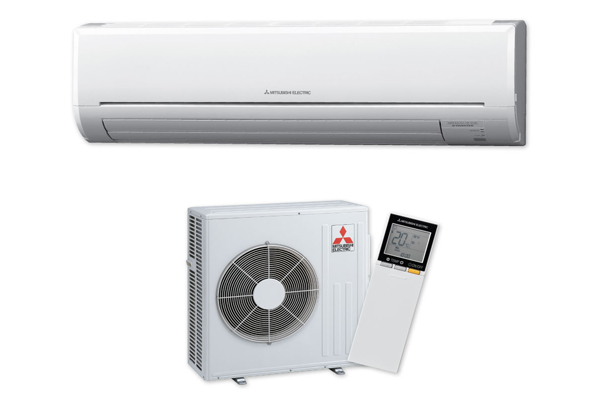Homeowners are always on the lookout to save money on home heating and cooling. One way that they attempt this is to close vents in unoccupied rooms in their homes. With the vent closed, the homeowner thinks that the conditioned air is then redirected to a room where it is needed. However, this practice does more harm than good and doesn’t save the homeowner any money. In fact, it actually increases costs for the homeowner. So, if you are considering if you should keep wall vents open or closed, read this article to learn more.
Reasons To Avoid Closing Registers For Temperature Control
This article discusses why it is important to keep your HVAC air registers open. It also includes a few energy-saving tips, including HVAC zoning.
Understanding How HVAC Ventilation Works

Your home probably has a closed HVAC system where the air is forced to pass through filters. This way, you can be sure that the air you breathe inside your house is clean and safe. If you think about it, your home is essentially an enclosed space. Therefore, an external force like a fan is needed to move the air. With a forced-air HVAC system, blower fans are used to circulate the air throughout your home. An air conditioner will move the air to the condenser coils for cooling, whereas the air will be heated if it is a furnace. This is done before the cold or warm air is distributed into your home.
The fan motor of your HVAC system is either fixed or variable speed. The former means that it is at a steady state at all times, regardless of the air pressure inside your house. This type is typically cheaper as it doesn’t have as many complicated parts for it to run. On the other hand, a variable motor automatically adjusts per the pressure it senses indoors. Just bear in mind that having an HVAC system with a fixed motor means that it will work harder to move and recirculate the air in a limited area.
Why It Is Not Recommend To Close Your HVAC Air Registers
If you want to be more energy-efficient and save money on your energy bills, closing the vents is not the answer. Listed below are some of the reasons why this is not recommended.
Your HVAC System Doesn’t Work The Way You Might Think
An HVAC system is not equipped with a sensor that determines when you have closed or open registers throughout your house. Therefore, it will still use the same amount of energy to produce the same amount of warm or cold air. Your system can only maintain the set thermostat setting. It will not slow down as long as the settings in your thermostat remain unchanged. As a result, you will still pay for the same amount of energy consumed.
Pressure Imbalance In The HVAC System
Closing the registers to save energy means you are closing the supply register. The return register, which draws air from the room, still remains open. The return register draws air from the closed room, creating lower pressure. The room’s depressurization forces outdoor air to infiltrate the room. They get in via small gaps, holes, and cracks around the room. This destabilizes the indoor air temperature, which increases or decreases depending on the outdoor air’s temperature. It also leads to poor indoor air quality.
Uneven Room Temperatures
HVAC systems have internal dampers that can be adjusted to control the air supply volume in every room in your home. This is a necessary feature as it ensures that there is enough airflow volume. This allows your system to maintain consistent temperatures no matter how far the room is from the blower. Closing one or a few supply registers disrupts the airflow and temperature balance throughout the system. This imbalance causes too much airflow in the rooms closer to the blower and too little airflow in further rooms.
Increased Risk Of Wear-And-Tear To The HVAC System
Closed supply vents increase the static pressure in the supply ducts. As a result, pressure increases in the blower, overworking the component. A system blower that overstrains during its operation will quickly succumb to wear and tear. In turn, you can expect it to have a shorter service life.
Things To Do To Save On Your Heating & Cooling Costs
Most people close registers to attempt to redirect air or to try to save on energy costs. Below are some more effective methods to reduce heating and cooling costs.
HVAC Size
The size of your HVAC system is calculated using several factors specific to your home. It needs to match your home’s size so that it can cool or heat the area effectively and efficiently. Closing the vents means that you reduce the amount of space your system needs to heat or cool. As a result, the system won’t work as expected.
HVAC Zoning
Use an HVAC system with zone temperature control to help you save money and still receive the needed home comfort. This way, your home is divided into zones, and you can maintain different temperatures in various zones. For instance, the master bedroom could be one zone while the kitchen is another. You might want it warmer in your room while colder in the kitchen.
Zoning allows you to adjust your thermostat setting so that your system operates at the minimum. It also lets you use fans so that the indoor air can circulate. Consider putting window treatments as these will help maintain the indoor temperature. You can also leave room doors open when they are too cold or too warm so that air can be distributed evenly.
Ductless Mini-Split Systems
 You can also opt to install a ductless HVAC unit as a supplement to your central HVAC system. This type of HVAC system offers zoned control, so you can directly install them in rooms that you use more often. This will allow you to adjust your central HVAC system’s thermostat so that it doesn’t strain during its operation. You can also customize the cooling or heating in the rooms you occupy. Contact a qualified HVAC company like Tevis Energy to learn more.
You can also opt to install a ductless HVAC unit as a supplement to your central HVAC system. This type of HVAC system offers zoned control, so you can directly install them in rooms that you use more often. This will allow you to adjust your central HVAC system’s thermostat so that it doesn’t strain during its operation. You can also customize the cooling or heating in the rooms you occupy. Contact a qualified HVAC company like Tevis Energy to learn more.
Call Tevis Energy For All Of Your HVAC Requirements

Call Tevis Energy when you need a reliable HVAC service provider. We offer excellent and affordable services, including heating and cooling installations, maintenance, repairs, and more. Rest assured that our techs provide knowledgeable and friendly services at competitive prices. Your satisfaction is important, so we deliver honest and exceptional services at all times.
Learn more about what Tevis Energy can do for you by calling us today! Book a free, in-home consultation with one of our professionally certified HVAC technicians. You can rely on us for practical solutions that fit your budget. Call Tevis Energy now!
You can click here to contact us now or call us at (410) 876-6800 to find out more!
